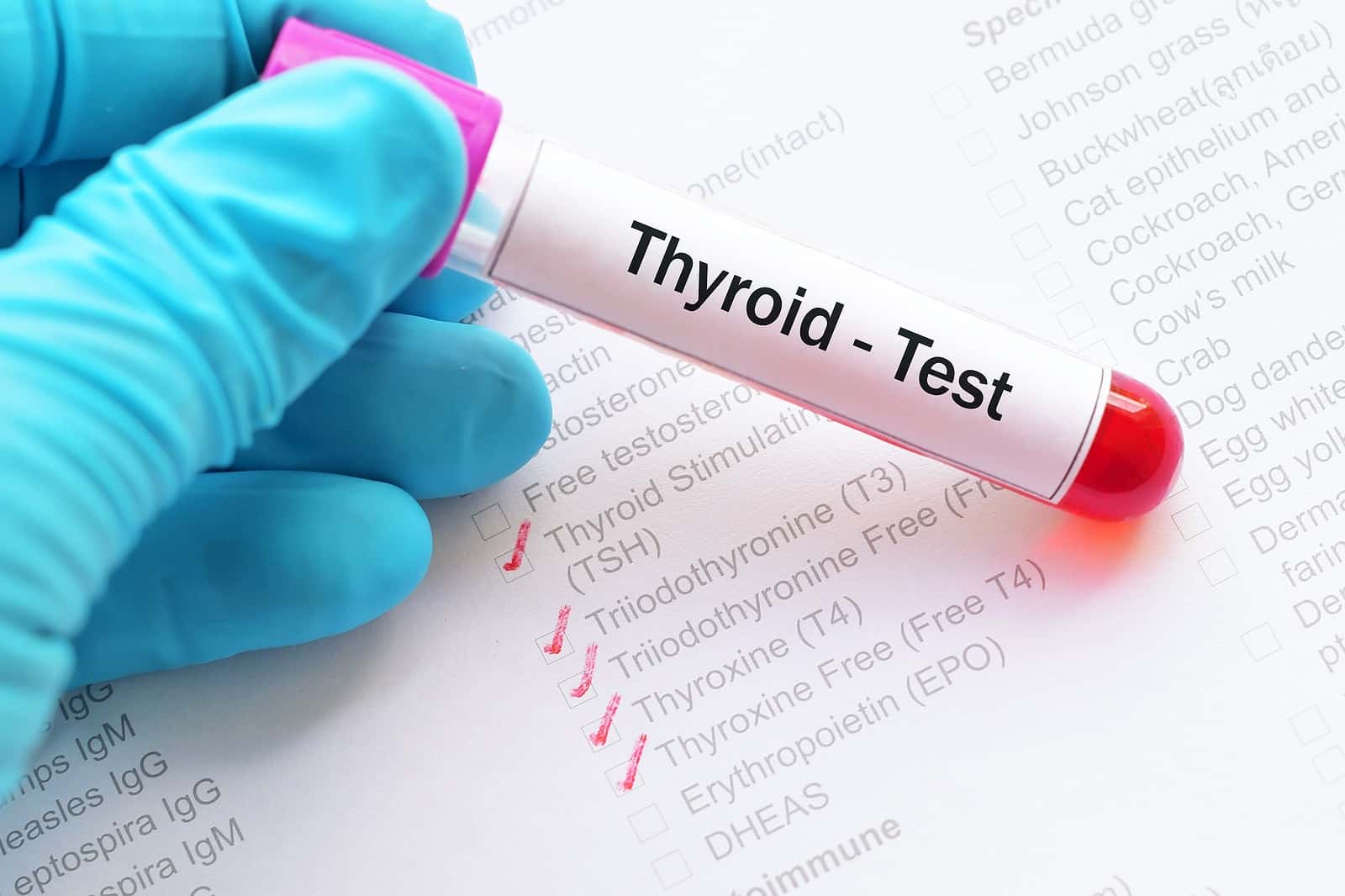
An underactive thyroid gland is a fairly common medical problem, affecting up to 2 percent of the population. Doctors often assume that it is easy to diagnose hypothyroidism. Patients often report, however, that they suffer for years before their symptoms are linked to thyroid trouble. Some people are justifiably confused about thyroid tests. What should you know about them?
Reader Puzzled by Thyroid Tests:
Q. I had blood work done a few months ago for thyroid function. My primary care physician said my TSH is normal at 12.9. I asked about T3 and T4 levels but was told further testing isn’t required if TSH levels are in the normal range.
Is 12.9 really normal? From what I’m reading, it seems a bit high. I have been dealing with hair loss, dry skin, fatigue and depression. I’d like to maintain a healthy lifestyle, but I’m not sure what to do about my thyroid.
What Is TSH?
A. TSH (thyroid stimulating hormone) is often considered the gold standard for evaluating thyroid function. It can be confusing on at least two points.
First, TSH is an upside-down indicator. That is, when TSH is high, it suggests that circulating thyroid hormones such as T4 and T3 may be too low. The brain is trying to use TSH to tell the thyroid gland to make more hormone. Conversely, low TSH indicates too much thyroid hormone in the bloodstream.
What Is the Normal Range of TSH?
Second, there is considerable controversy about the normal range of TSH. Many endocrinologists use a reference level from 0.4 to 4.2, which puts your value well above normal. Some prefer a range that is even narrower, from 0.3 to 3.0. One study found that TSH variations between 0.34 and 5.6 were not associated with differences in mood, memory or overall health, although people with higher TSH thyroid tests may be worse at making decisions (Thyroid, Sep., 2016).
When TSH is high, it means that the thyroid is underperforming. Symptoms like yours are typical for hypothyroidism.
TSH and Vitamin D:
Another reader responded to this question about TSH levels.
Q. I have lived with hypothyroidism all my life. My TSH levels correlate closely with how I feel: I’m best when TSH is under 2. I start to notice the following when it gets up to 4: cold hands and feet, foggy thinking, depression, weight gain and fatigue.
Two internal medicine doctors and a pharmacist have told me that TSH levels should be under 2. I strongly believe that, too, based on years of personal experience. Also, I believe that there is a connection between low vitamin D levels and hypothyroidism. Getting my vitamin D to a normal level helped change my life.
I am a full-time office worker and mother of three with healthy exercise and eating habits. I hope my experience will help others.
A. Thank you for sharing this advice. Endocrinologists generally consider that TSH above a level of 2.5 indicates hypothyroidism. Some draw the line at 4.5. Remember, TSH (thyroid stimulating hormone) goes up when thyroid hormone production goes down. As a result, a higher TSH level generally indicates worse thyroid function.
Although it is not common knowledge, your observation that vitamin D could be helpful is plausible. There is preliminary evidence that low levels of vitamin D may contribute to an underactive thyroid gland (Galen Medical Journal, May 21, 2020).
Seasonal Variation in TSH Values:
Q. I have long suspected that my thyroid function changes with the seasons. My doctor only orders a thyroid test once a year before my annual physical. Should I request more frequent blood work?
A. You might find that your thyroid lab results are different between summer and winter. A recent letter to the editor of Clinical Chemistry (March 1, 2023) states that TSH peaks in the winter and is lowest in the summer. As a result, thyroid function may be lower in the winter than in the summer. Symptoms may include sensitivity to cold, constipation, weight gain, low energy and dry skin. You may want to ask your doctor to order blood tests for T3 and T4 as well as TSH twice a year to better assess seasonal variations in function.
Find Out More:
You might need to consult a thyroid specialist. To prepare you for that meeting, you may benefit from our 25-page eGuide to Thyroid Hormones. It tells you about other important thyroid tests and a variety of treatments.
If you prefer to learn by listening, you might wish to check out our Show 1015: Thyroid Mysteries, Controversies and the Latest Research. There is also great information on TSH and hypothyroidism in Show 1330: Rethinking Hypothyroidism.
Citations
- Samuels MH et al, "Effect of thyroid function variations within the laboratory reference range on health status, mood, and cognition in levothyroxine-treated subjects." Thyroid, Sep., 2016. DOI: 10.1089/thy.2016.0141
- Pezeshki B et al, "The effect of vitamin D replacement on patient with subclinical hypothyroidism: A pilot randomized clinical trial." Galen Medical Journal, May 21, 2020. DOI: https://doi.org/10.31661/gmj.v9i0.1592
- El-Khoury JM, "Seasonal variation and thyroid function testing: Source of misdiagnosis and levothyroxine over-prescription." Clinical Chemistry, March 1, 2023. https://doi.org/10.1093/clinchem/hvad017

